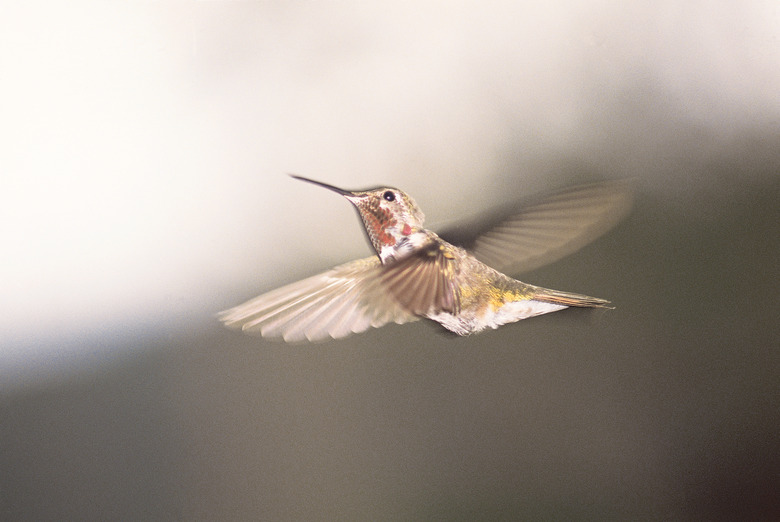The Effects Of The Extinction Of An Organism In A Desert Ecosystem Food Chain
The desert is a harsh, dry environment, but plants and animals who have adapted to those conditions thrive in these ecosystems. From eagles to ants, there are a diverse range of plants and animals that live and interact with one another in deserts around the world. Like all ecosystems, the web of species interactions can be fragile, and species extinction can have a large effect. The identity of the organism that is lost and its role in the ecosystem determines how the food chain is affected.
Desert Food Chains
Desert Food Chains
All ecosystems are composed of species that perform different roles in the food chain. In the desert, shrubs and cacti are the primary producers and form the base of the food chain. Next, there are small herbivores that eat the plants such as:
- mice
- prairie dogs
- ants
- grasshoppers
Above this trophic level there are mesopredators like foxes, snakes, and lizards that prey upon the small consumers. Finally, at the top of the food chain, animals like cougars and eagles will prey on all of the species below them. The role of the species that goes extinct plays a big role in how the food chain will be affected.
Functional Redundancy
Functional Redundancy
Not all extinctions have big impacts on ecosystems. Sometimes there are a lot of different species that essentially perform the same job or function in an ecosystem. If one of these species goes extinct, the others will increase in number and perform the same job. Such a "replaceable" species is called functionally redundant. Since deserts are harsh environments, species are more similar to one another because they need similar adaptations to survive. For example, Guofang Liu at the Chinese Academy of Science found that plants in the desert steppe of Mongolia have less functional diversity than plants in the meadow and typical Mongolian. This may indicate that plant extinctions in the desert may not have as big an impact as extinctions in other ecosystems.
Keystone Species
Keystone Species
Sometimes extinction can have a disproportionately large impact on an ecosystem. Such important species are called keystone species. Often keystone species are predators that maintain the stability of the entire ecosystem. The most well-known example is a species of seastar — Pisaster ochraceus — on the Washington Coast. When it's removed from the rocky intertidal, lots of other species go extinct as well. Top predators in the desert such as cougar and eagles are similarly important. Another keystone species in the American desert are hummingbirds. These are important pollinators of desert cacti that support a range of other species. When the hummingbirds are lost many desert plants and the species that depend on them disappear as well.
Domino Extinctions and Other Effects
Domino Extinctions and Other Effects
Sometimes species are closely linked to another species. When one goes, the other one that depended on it goes as well just like dominoes knocking each other over. A great example in the desert is the relationship between prairie dogs and black footed ferrets. Black footed ferrets depend on prairie dogs for food. When prairie dogs were driven to low numbers due to poisoning, the black footed ferret went extinct in most places. Species extinctions can also alter the structure of desert food. For example, if large kangaroo rats go extinct in desert grasslands, the grassland turns into shrub land because the important seed predation job the kangaroo rats performed has been lost.
References
- New Mexico State University: Jordana Basin Long Term Ecological Research
- Nature: Food Web: Concept and Applications
- National Geographic: Food Webs
- PLOS ONE: Plant Functional Diversity and Species Diversity in the Mongolian Steppe
- National Geographic: Keystone Species
- Nature: Keystone Species
- University of Michigan: Domino Effects and Secondary Extinctions
Cite This Article
MLA
Ph.D., Jason Steele,. "The Effects Of The Extinction Of An Organism In A Desert Ecosystem Food Chain" sciencing.com, https://www.sciencing.com/effects-extinction-organism-desert-ecosystem-food-chain-23435/. 24 April 2017.
APA
Ph.D., Jason Steele,. (2017, April 24). The Effects Of The Extinction Of An Organism In A Desert Ecosystem Food Chain. sciencing.com. Retrieved from https://www.sciencing.com/effects-extinction-organism-desert-ecosystem-food-chain-23435/
Chicago
Ph.D., Jason Steele,. The Effects Of The Extinction Of An Organism In A Desert Ecosystem Food Chain last modified August 30, 2022. https://www.sciencing.com/effects-extinction-organism-desert-ecosystem-food-chain-23435/
